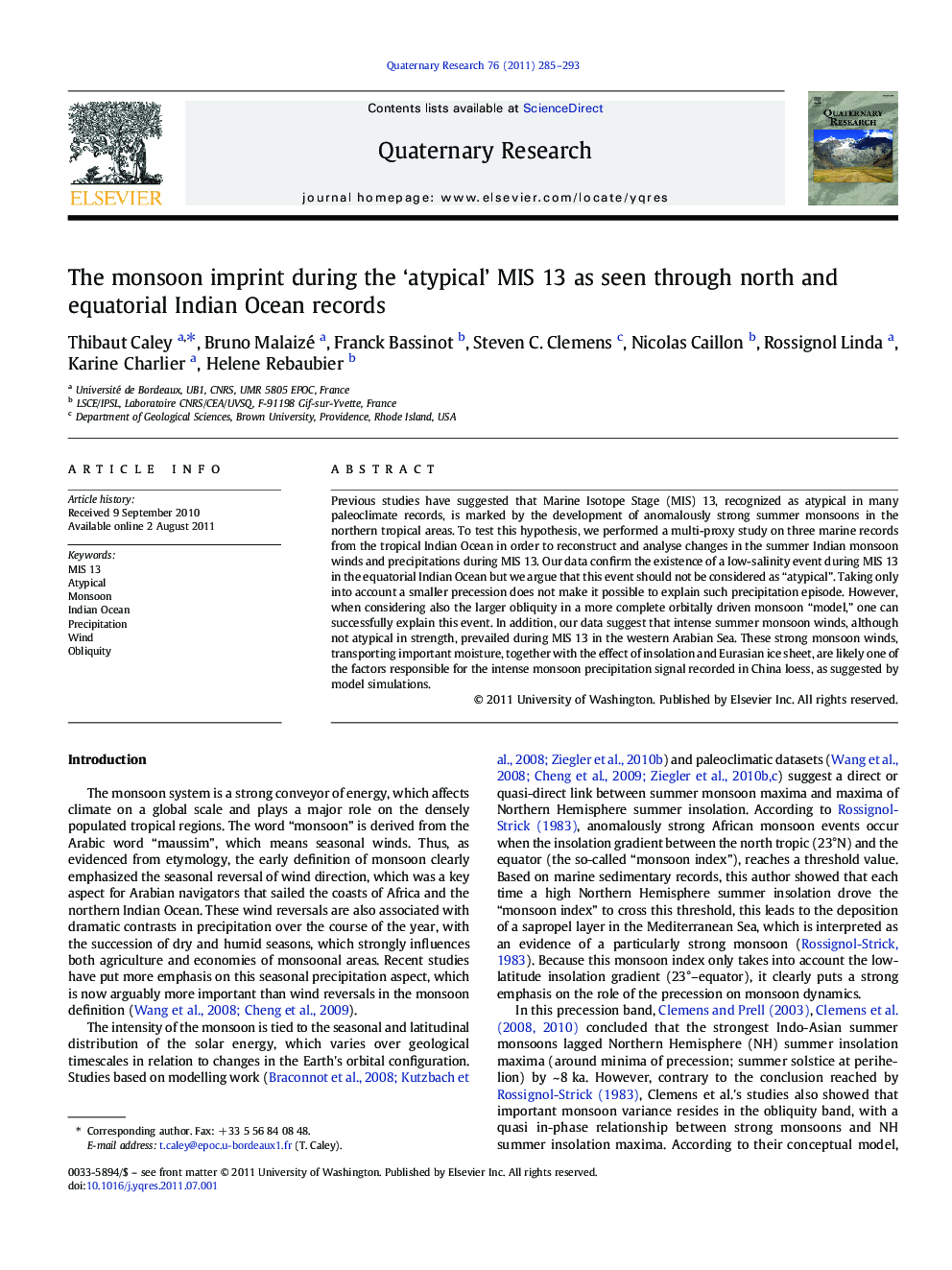| کد مقاله | کد نشریه | سال انتشار | مقاله انگلیسی | نسخه تمام متن |
|---|---|---|---|---|
| 1045408 | 944814 | 2011 | 9 صفحه PDF | دانلود رایگان |

Previous studies have suggested that Marine Isotope Stage (MIS) 13, recognized as atypical in many paleoclimate records, is marked by the development of anomalously strong summer monsoons in the northern tropical areas. To test this hypothesis, we performed a multi-proxy study on three marine records from the tropical Indian Ocean in order to reconstruct and analyse changes in the summer Indian monsoon winds and precipitations during MIS 13. Our data confirm the existence of a low-salinity event during MIS 13 in the equatorial Indian Ocean but we argue that this event should not be considered as “atypical”. Taking only into account a smaller precession does not make it possible to explain such precipitation episode. However, when considering also the larger obliquity in a more complete orbitally driven monsoon “model,” one can successfully explain this event. In addition, our data suggest that intense summer monsoon winds, although not atypical in strength, prevailed during MIS 13 in the western Arabian Sea. These strong monsoon winds, transporting important moisture, together with the effect of insolation and Eurasian ice sheet, are likely one of the factors responsible for the intense monsoon precipitation signal recorded in China loess, as suggested by model simulations.
Journal: Quaternary Research - Volume 76, Issue 2, September 2011, Pages 285–293